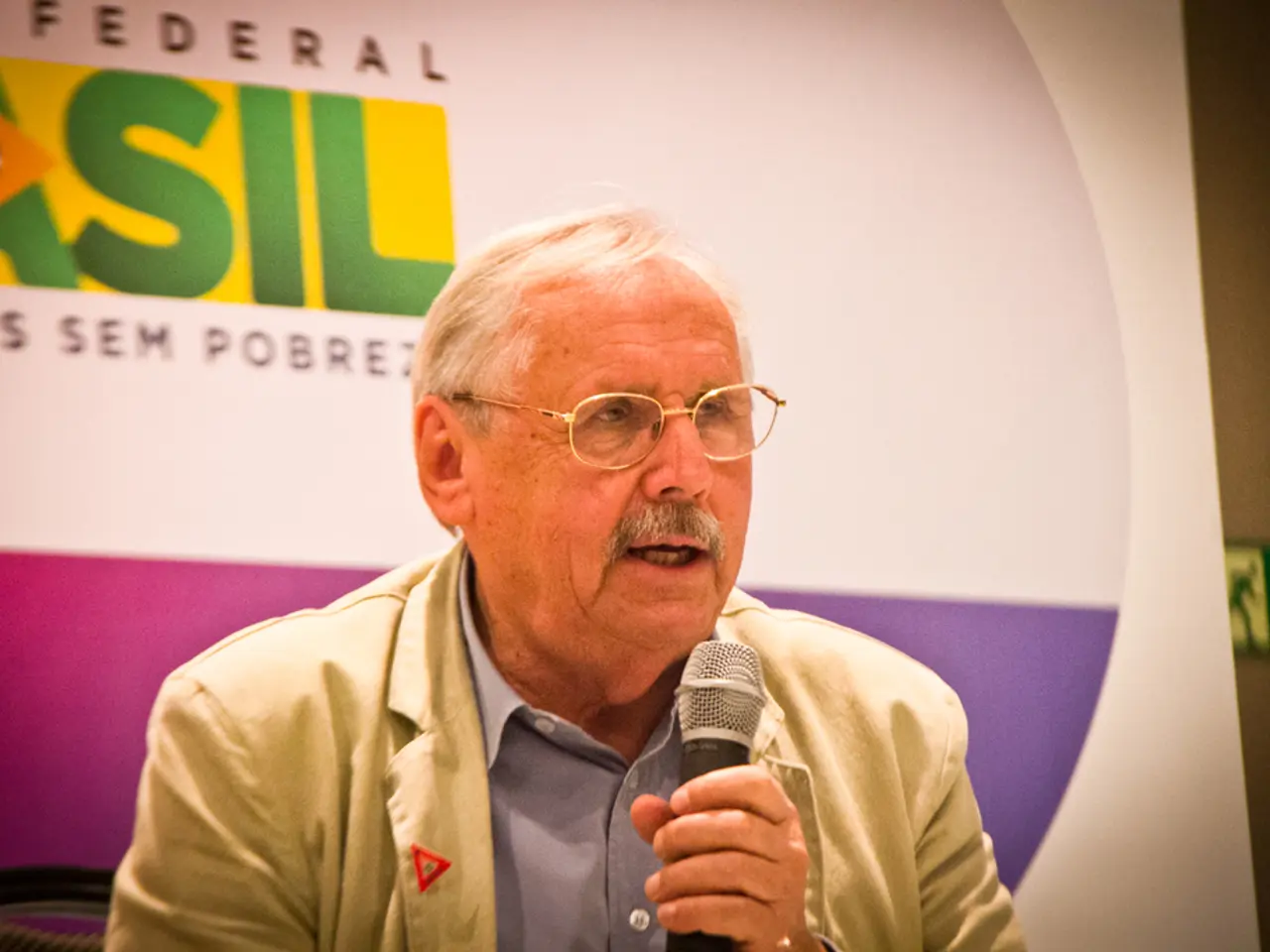Washingtonians Express Viewpoints on Trump's Activation of the National Guard in DC
In an unprecedented move, U.S. President Donald Trump has signed an executive order to establish a federally controlled "Safe and Beautiful Task Force" in Washington D.C., a decision that has sparked controversy and debate.
The executive order, which was announced on August 11, authorizes the mobilization of 800 National Guard troops and grants them the power to take over the Metropolitan Police Department. The move is part of Trump's campaign promise to "make America safe again" and restore Washington D.C. to its former glory, despite the city experiencing its lowest violent crime rate in over 30 years.
The legal implications of this decision are significant. Trump's actions reflect a rare and controversial use of presidential power to federalize local police functions and deploy National Guard troops in the nation’s capital without local consent. This raises questions about the balance of federalism and the autonomy of D.C.’s local government.
Critics view this as a federal power grab that undermines local control and could set a precedent for federal intervention in other cities. The deployment of federal troops, according to some, is more symbolic and political, aimed at demonstrating strong leadership and appealing to voters concerned about urban crime, rather than responding to an objective public safety emergency.
However, the deployment of National Guard troops is not without its challenges. With little to no training on how to deal with homelessness, mental illnesses, addiction, and poverty, there are concerns about the troops' ability to effectively address the complex issues facing the city.
Moreover, some residents believe that Trump's actions are less about crime and more about setting a precedent to normalize military presence in a liberal stronghold and potentially suppress dissent. The current situation in DC is oddly quiet, with fewer police than usual, particularly in areas where there are typically many cops due to the presence of congresspeople. National troops are patrolling the safest, whitest, and richest neighborhoods in DC, avoiding areas east of the river.
Despite Trump's claims of "totally out of control" crime, the numbers tell a different story: violent crime in DC is actually at a 30-year low. This raises questions about the legitimacy of Trump's claims and the true intentions behind his decision to deploy National Guard troops.
The deployment has also had economic consequences for the city. DC is facing a $20 million cut in federal security funding, a 44% cut in FEMA’s urban grant program. This comes at a time when the city is already struggling to address homelessness and provide adequate housing solutions.
In conclusion, Trump’s mobilization of the National Guard and creation of the task force in Washington D.C. is a significant and controversial move that raises questions over federalism and local governance. The deployment serves more symbolic and political purposes, rather than responding to an objective public safety emergency, and has had economic consequences for the city. The true intentions behind Trump's decision remain a topic of debate and controversy.
[1] "Trump Signs Executive Order to Place DC Under Federally Controlled 'Safe and Beautiful Task Force'" (CNN, August 11, 2021) [2] "Trump's Move to Deploy National Guard in DC Sparks Criticism and Debate" (Washington Post, August 12, 2021) [3] "Federal Overreach or Necessary Intervention? The Legal and Political Significance of Trump's Deployment of National Guard in DC" (The Hill, August 13, 2021) [4] "DC Crime Rates: A Look at the Numbers" (CBS News, August 14, 2021)
Read also:
- Weekly happenings in the German Federal Parliament (Bundestag)
- Southwest region's most popular posts, accompanied by an inquiry:
- Discussion between Putin and Trump in Alaska could potentially overshadow Ukraine's concerns
- Massive 8.8 earthquake hits off the coast of Russia's Kamchatka Peninsula, prompting Japan to issue a tsunami alert.








